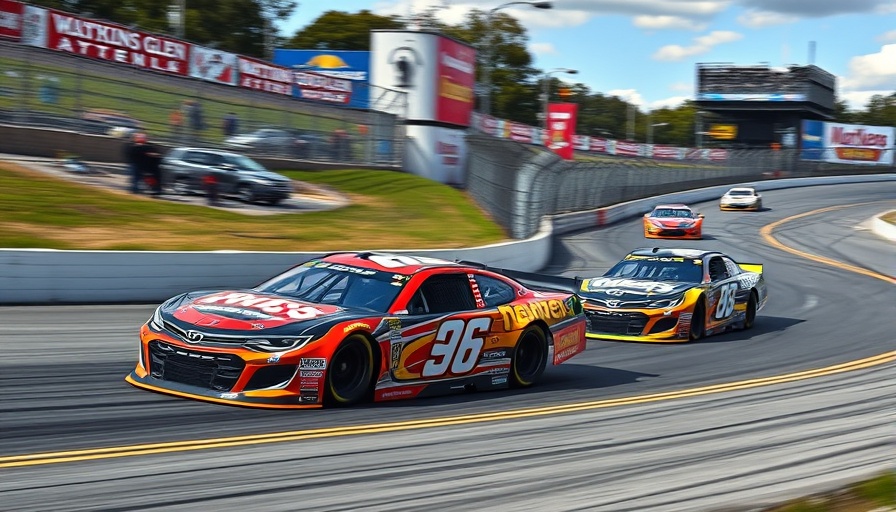
The Court's Decision: What It Means for NASCAR
The recent court ruling favoring Rick Ware Racing (RWR) in its dispute with Legacy Motor Club marks a significant moment in NASCAR's competitive landscape. This verdict not only impacts RWR's operations but also carves out new pathways for teams engaged in spirited competition for charter rights. For those unfamiliar, charters serve as a means for teams to ensure their participation in races without the perpetual stress of qualifying. The decision has jettisoned tensions that have been brewing between teams over the past several seasons regarding charter distribution and team stability.
Decoding the Charter System in NASCAR
NASCAR's charter system, introduced in 2016, transformed team dynamics by allowing 36 teams to secure guaranteed spots in races. This system aims to provide financial stability for teams and ensure competitive balance. However, what’s interesting is how this stability has often led to tensions among team owners—illustrating just how monetarily crucial these charters are. For hobbyist and sporters enthusiastic about NASCAR, understanding the intricacies of this system is essential, as it lays the groundwork for the relationships and rivalries we see during race weekends.
Rick Ware Racing: An Underdog's Tale
Rick Ware Racing, often regarded as an underdog in the NASCAR series, has fought diligently to earn its place among powerhouse teams. The court's ruling is not just a victory for RWR; it's emblematic of the struggles faced by smaller teams working to enhance their credibility within the sport. With the court siding with RWR, it opens up avenues for these smaller teams to challenge larger competitors, potentially shaking up the race results frequently dominated by bigger names. Enthusiasts may recall how smaller teams have made waves in the past—not just on the track but within the business dynamics of NASCAR. This ruling adds another chapter to that narrative.
Future Predictions: What Lies Ahead for NASCAR Teams?
A pivotal question now arises: how will this ruling affect the future allocation of charters? With Rick Ware Racing's new standing, it could lead to a wave of similar moves in the coming seasons. Other teams might see RWR's success and consider legal avenues in their own disputes if they feel wronged. This situation may usher in an era where the competitive balance shifts further, providing fans and hobbyists countless new storylines to follow.
Reactions from the NASCAR Community
The NASCAR community has shown mixed reactions to the ruling. While some applaud the decision as a stand for equitable opportunity, others worry it may exacerbate existing discrepancies between teams, with larger franchises having more resources to contest these decisions legally. It'll be interesting to see how team owners address these disparities moving forward.
Conclusion: An Ongoing Saga in NASCAR
This ruling is just a snapshot in what promises to be an ongoing saga within NASCAR. As hobbyists and sporters, understanding these dynamics adds layers to our race-day experience. The interplay among teams, their fight for charters, and the implications of court decisions only enrich our understanding and appreciation of the sport.
To grasp the full scope of what this ruling means and how it could symbolize broader shifts within NASCAR, dive deeper into the mechanics of how charters influence race strategy, sponsorships, and the future of team negotiations. Engaging in this discourse not only makes you a more informed fan but also a pivotal part of NASCAR's evolving narrative.
 Add Row
Add Row  Add
Add 




Write A Comment